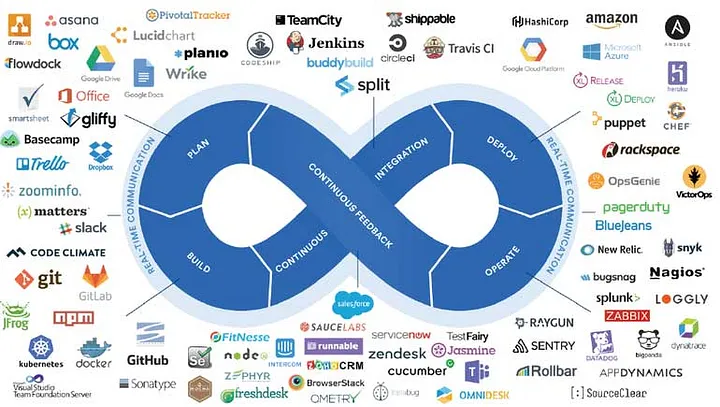In today’s rapidly evolving development landscape, efficiency is paramount. Enter Jenkins, the open-source automation server transforming the practices of Site Reliability Engineering (SRE) and DevOps teams. Let’s delve into how Jenkins revolutionizes these methodologies.
Jenkins: A Cornerstone of Efficiency
At its core, Jenkins serves as the conductor of a software development assembly line, orchestrating tasks from building to deploying code. As an open-source automation server tailored for continuous integration and continuous delivery (CI/CD), Jenkins offers unparalleled benefits:
Accessibility and Ease of Use:
- Open Source and Free: Benefit from a vibrant community and a vast plugin library.
- User-friendly web interface seamlessly integrates with various operating systems.
A Feature-Rich Arsenal:
- Scalability: Handles complex workflows and growing infrastructure effortlessly.
- Plugin Library: Hundreds of plugins integrate seamlessly with SRE and DevOps tools.
- CI/CD Excellence: Streamlines software delivery by automating the entire CI/CD pipeline.
- Version Control Integration: Integrates seamlessly with version control systems for automatic builds and deployments.
- Automated Testing: Ensures code quality through comprehensive automated testing.
Fueling SRE Workflows
Jenkins empowers SRE teams in various capacities:
- Automated Monitoring: Integrates with monitoring tools to trigger actions based on predefined thresholds.
- Incident Response Automation: Automates repetitive tasks during incidents, ensuring swift resolution.
- Infrastructure Provisioning: Integrates seamlessly with IaC tools to automate provisioning and configuration management.
Automating DevOps Pipelines
Jenkins bridges the gap between development and operations:
- CI/CD Pipeline Automation: Automates the entire pipeline, from building to deployment across diverse environments.
- Version Control Integration: Triggers builds and deployments automatically upon code commits.
- Automated Testing: Executes a comprehensive suite of tests across pipeline stages, ensuring robustness.
Beyond Automation: The Jenkins Advantage
Jenkins offers more than just automation:
- Scalability and Flexibility: Adapts effortlessly to evolving infrastructure needs.
- Community-Driven Innovation: Thrives on a vibrant community contributing plugins, updates, and best practices.
- User-Friendly Interface: Simplifies automation tasks for users of all skill levels.
Case Study: Finastra’s Journey with Jenkins
Finastra, a global FinTech leader, recognized Jenkins as a solution to enhance building security and transparency:
- Detailed Build Information: Jenkins logs comprehensive metadata, aiding in effective monitoring and tracking.
- Enhanced Security Visibility: Detailed build logs enable proactive identification and mitigation of security vulnerabilities.
- Streamlined Incident Response: Jenkins facilitates rapid issue resolution, ensuring minimal disruptions.
Collaboration for Success
Finastra credits the Jenkins community and CloudBees for their invaluable support in leveraging Jenkins effectively.
Conclusion: Secure, Reliable Software Delivery
Finastra’s success with Jenkins underscores its role in ensuring secure and reliable software delivery, fostering trust and confidence among global clientele. Incorporating Jenkins into your development arsenal is not just a choice; it’s a strategic imperative for modern FinTech companies prioritizing efficiency, security, and innovation.
We can use Jenkins to automate the Docker build and deployment as well. you can visit the docker to learn some interesting about the docker.
Jenkins Jenkins — User Story Library IBM Cloud DevOps | Jenkins plugin Jenkins is the way to safe, secure, and reliable product delivery

